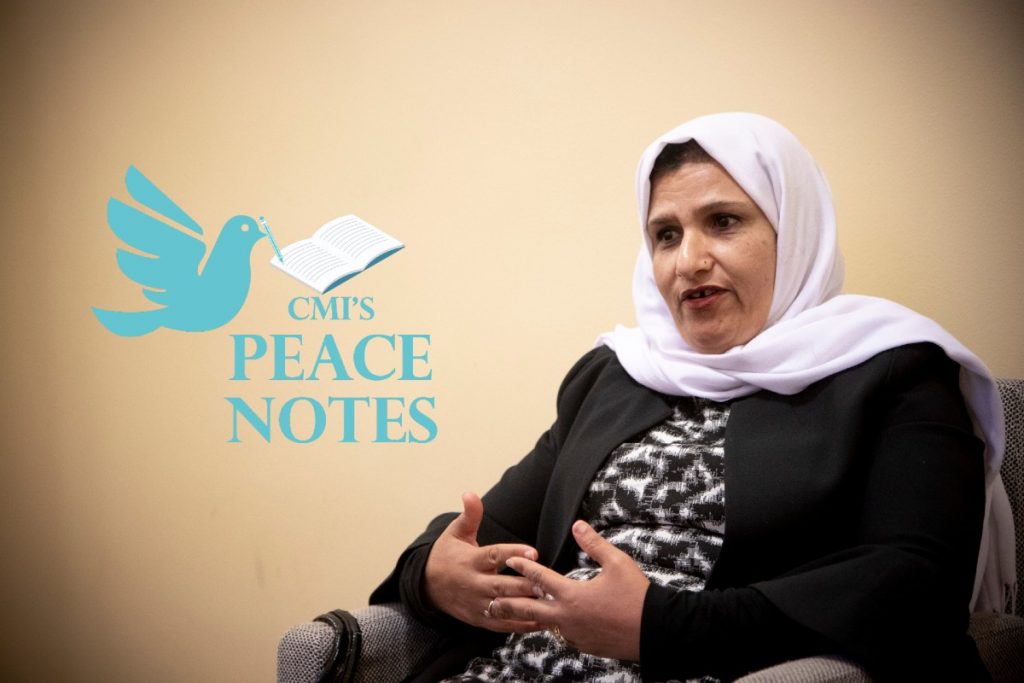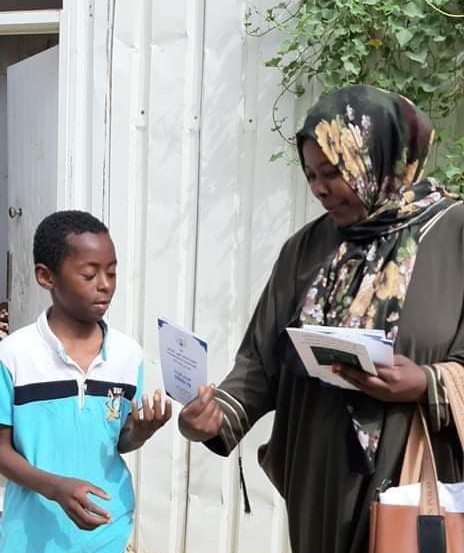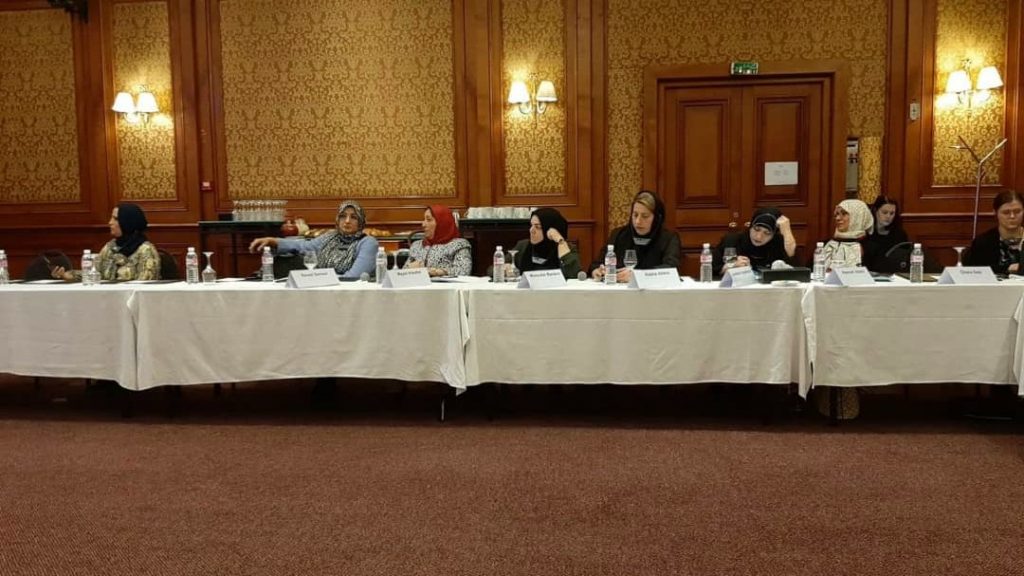“You get a feeling of sadness when walking the streets of the city”
Peace Notes is CMI’s new series of short accounts of CMI staff in different regions. In each article a staff member describes their work and how the global coronavirus pandemic impacts the situation they work with. First up is CMI’s Coordinator Ghemera Krekshi.

CMI’s Coordinator Ghemera Krekshi.
The coronavirus pandemic has forced Libyans too to stay indoors this spring. But the strict curfew has not stopped the violence. Quite the opposite. Fighting has increased in different parts of the country, including in the capital Tripoli, where CMI has some local workers.
“You get a feeling of sadness when walking the streets of the city,” says Ghemera Krekshi, CMI’s coordinator. The city is usually busy with people sitting in cafes or going to market. Social life in Tripoli is very active, and people are used to spending a lot of time with their families and friends also outside of their homes, especially now during Ramadan. Without all that bustle, the city feels sad, says Krekshi.
 Krekshi joined CMI in 2017, and has worked as a Coordinator for the CMI-supported Women’s Working Group (WWG) in Libya. Krekshi lives in Tripoli and coordinates the activities of the group, whose members are women active in politics and civil society. WWG aims to foster dialogue among women from different regions and social settings.
Krekshi joined CMI in 2017, and has worked as a Coordinator for the CMI-supported Women’s Working Group (WWG) in Libya. Krekshi lives in Tripoli and coordinates the activities of the group, whose members are women active in politics and civil society. WWG aims to foster dialogue among women from different regions and social settings.

Women’s Working Group distributing their booklet.
Booklet to raise awareness on the global pandemic
Libya doesn’t currently have many registered cases of COVID-19. But the authorities have imposed strict controls since the start of the global pandemic. “At first we had a 24h curfew for two weeks, but now the curfew has been adjusted from 6am-6pm.” The restrictions on movement make it difficult for many people to work.
“With the women’s group we stay in contact by calling and messaging on Viber and Facebook”. This is normal practice for the group members, who live in different parts of the country. Only face-to-face meetings are now limited.
When the global pandemic started, the women wanted to do something for their communities. That’s how they got the idea of publishing a booklet raising awareness about COVID-19.
WWG’s members and Libyan Women Union are known for taking action instead of just talking about what should be done. “Everything happened in a week. Planning, printing, distribution”, says Krekshi.
The group noticed that information about the pandemic was being shared on social media, but not all of it was truthful. It was important to have accurate information shared among Libyans. It was also important to have the booklet printed, because not all have access to internet, Krekshi adds.
The group distributed 1000 copies of the booklet around the country. Only the eastern region couldn’t be reached because of fighting on the way there. “The booklet has received good feedback”, says Krekshi.

Working Group convened in November to discuss the key issues the Libyan political process should address.
Women continue their work with CMI’s support
With CMI’s support the WWG continues to strengthen women’s participation in the transition in Libya. It also works to advance social reconciliation between women from the security sector and other women’s groups. The WWG also plans to continue its advocacy work. “Next, it would like to carry out a survey on the societal impact of the pandemic in Libya”, Krekshi tells.
For instance, the pandemic has increased domestic violence against women, due to people having to spend a lot of time indoors together. The group is now planning to interview Libyan women about their living conditions during the pandemic.
Krekshi is in daily contact with the group and CMI colleagues in Helsinki. The Women in Peacemaking team is supporting WWG in its activities.
“The women have told that cooperation with CMI is easy: they are happy to be able make their own ideas happen with the support of the organization”, relates Krekshi.
Amidst the difficult situation the working group continues to plan for the future.
“Libyan women are strong. They are not afraid, and they want to help“.